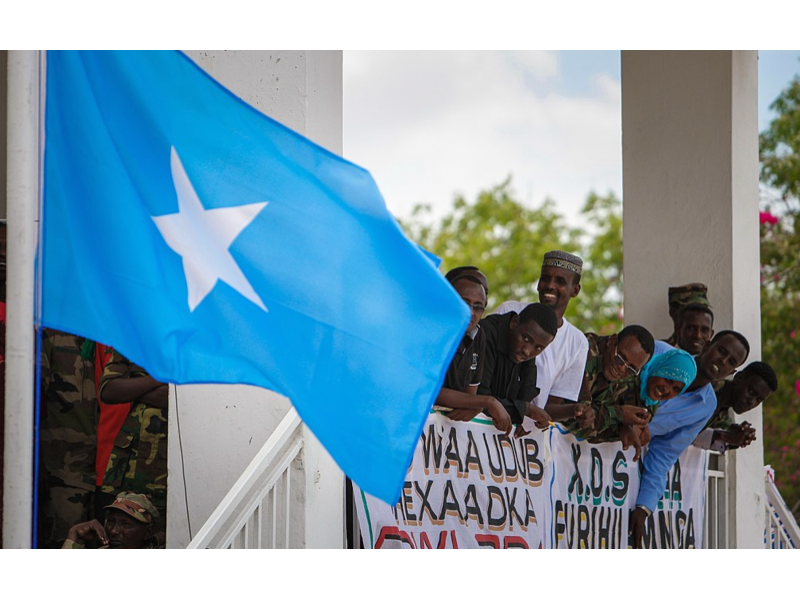(Somalis protest in 2013. Image by AMISOM Public Information, CC0, via Wikimedia Commons https://commons.wikimedia.org/wiki/File:2013_04_12_Armed_Forces_Day-15_(8647047933).jpg )
In honor of Somalia’s Independence, we are investigating the political unrest in the country, the 2021 elections, and the historical memory of Somalia’s past dictatorship.
In mid-April of this year, the lower house of Somalia’s parliament moved to extend the term of the Somali president, Mohamed Abdullahi Farmajo, also known as Farmajo or Farmaajo, to serve for an additional 2 years, even though his term ended in February. Elections were initially scheduled to take place at the end of last year, but due to factors such as the coronavirus, heavy flooding, and political parties’ inability to decide who will manage the polls, the elections have been postponed nine times. In addition, jihadist group Al-Shabaab reported that it would interrupt the elections, and issued a warning for anyone who participates in the elections.

(Somali president Mohamed Abdullahi Farmajo. Deeqosonna Warsame, CC BY 3.0 <https://creativecommons.org/licenses/by/3.0>, via Wikimedia Commons)
Somali citizens responded in an uproar with rioting in the streets, and international donors were disgruntled. The United States has been active in providing resources for the country to combat the jihadist group and has publicly denounced the extension, along with other stakeholders who fear a dictatorship. From 1969 to 1991, Mohamed Siad Barre ruled the country as a dictator and was deposed of power via a violent civil war.
For one month, citizens protested the president’s extension, and the Somalian government fired rounds at the citizens, killing some and injuring others. After local and international pressure, Farmaajo himself requested that the 2-year extension be removed.

(Somali woman and her baby at a refugee camp. Image by EU Civil Protection and Humanitarian Aid via Flickr)
The presidential elections, which are to be held on October 10th, 2021, should quell the political unrest running rampant in the country. This one-person vote election will be the first the country has experienced since 1969.

Works Cited
https://www.nytimes.com/2021/04/14/world/africa/somalia-president.html
https://www.arabnews.com/node/1851986/middle-east
https://reliefweb.int/disaster/fl-2021-000051-som
https://www.nytimes.com/2021/02/19/world/africa/violence-mogadishu-somali-elections.html
https://www.voanews.com/africa/somali-lower-house-parliament-extends-presidents-term-two-years
https://www.britannica.com/biography/Mohamed-Siad-Barre
https://www.aljazeera.com/news/2021/6/29/somalia-to-hold-presidential-election-october-10





